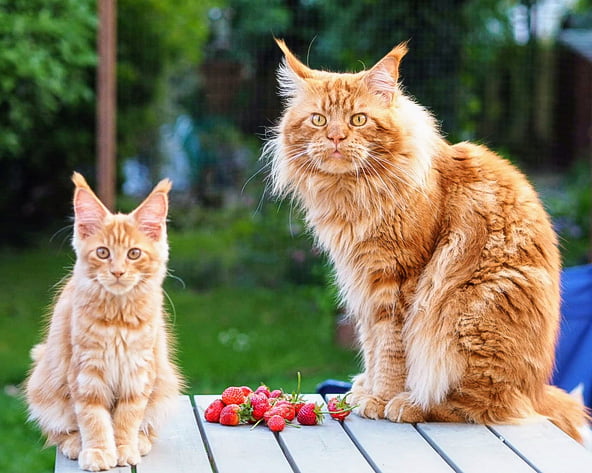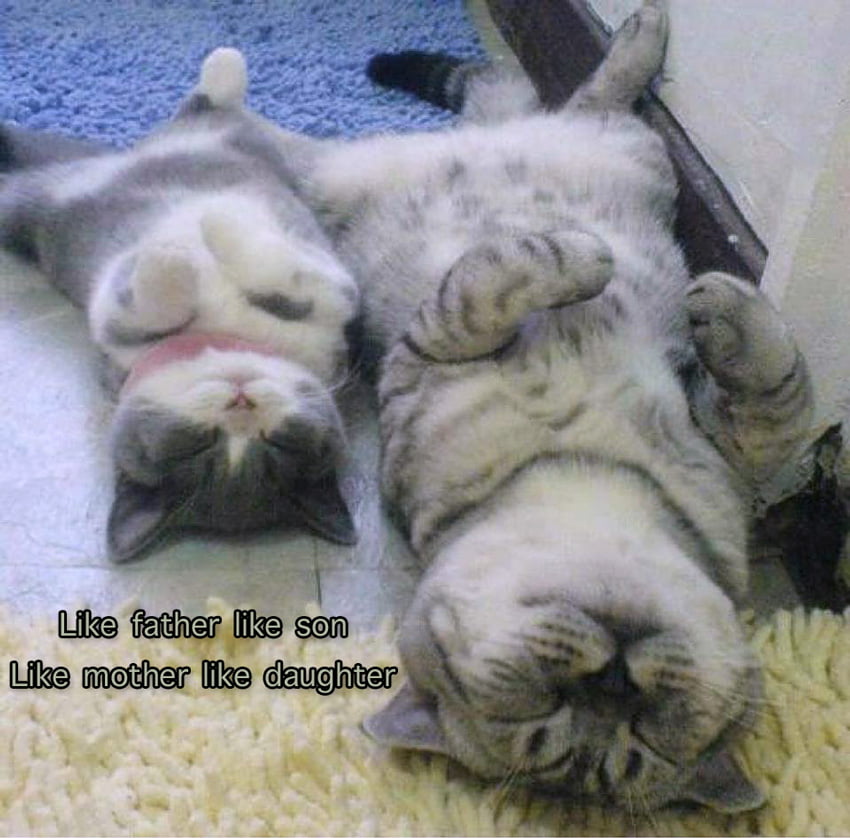A kitten’s personality is dictated by inherited behaviours and environmental experiences; the nature and nurture argument, which has been around for donkey’s years. It is universally accepted that the important socialisation period of cats to people appears to occur between two and eight weeks, whereas it is less effective if delayed until after seven weeks. Some scientific studies suggest that the following factors influence a cat’s personality: the genes of the father, behavioural influences and the genes of the mother, the presence or absence of the mother during interactions by her offspring with humans, human stroking and feeding and aspects of a kitten’s curiosity and fear.

In this short post I would like to look more at the relationship between father and kitten. In 1994, a scientist, Reisner, and his colleagues wanted to find out if handling at early ages or other factors such as paternity (i.e. the influence of the father genetically on offspring as studied by Turner) would help kittens to better respond to laboratory or veterinary procedures such as vaccinations. They found that 15 minutes of handling three times per week for three weeks did not have a clear beneficial effect on later behaviour i.e. 20 weeks later. They found that paternity and “litter of birth” had the greatest influence on whether kittens were calm during the procedures referred to.

Another scientist, in 1995, McCune, wanted to work further on Turner’s work which had taken place in 1986. He wanted to look at the socialisation of kittens together with the influence that a friendly father may have on the subsequent interactions of kittens with humans. Kittens born of a friendly father and socialised were influenced by both factors at one year of age. In a study, cats were put through three different situations. In one, a familiar person entered a test enclosure and sat for 10 minutes. They then approached the cat. An alternative procedure was when an unfamiliar person did the same sequence and a third procedure was the placing of a “novel wooden box” in the centre of the enclosure (I guess this was testing the kittens’ reaction to a strange, inanimate object).

Significantly, it seems to me, one year old kittens who had been socialised from a friendly father were more likely to show relaxed behaviour and less likely to show defensive behaviour to a stranger. This sort of feline behaviour includes hissing, body flattening and/or hiding. The report says the socialisation did not seem to play a role in responses to the novel test box as it distressed all the cats at the outset (I am thinking of the banana and cucumber videos). However, it was noted that friendly-father kittens were quicker to approach, touch and enter the box and stay near it than cats born of unfriendly fathers.

It appears that the genetic inheritance from friendly fathers had a bigger impact on a kitten’s confidence than socialisation. They developed a “boldness” to approaching people or objects rather than “simply an increased friendliness towards people”. The results suggest that the personality of the father plays a role in the development of kitten personality and (in my view) their confidence. Confidence is a major factor I believe in a cat’s desirable characteristics in their interactions with humans. In other words cat owners prefer confident cats and confident cats are more likely to be adopted at shelters because they promote themselves with potential adopters.
I am indebted to PL Bernstein writing about the human-Relationship in the book The Welfare of Cats edited by Irene Rochlitz. I have added my thoughts where applicable but kept them to a mimimum.
SOME PAGES ON SOCIALISATION:

